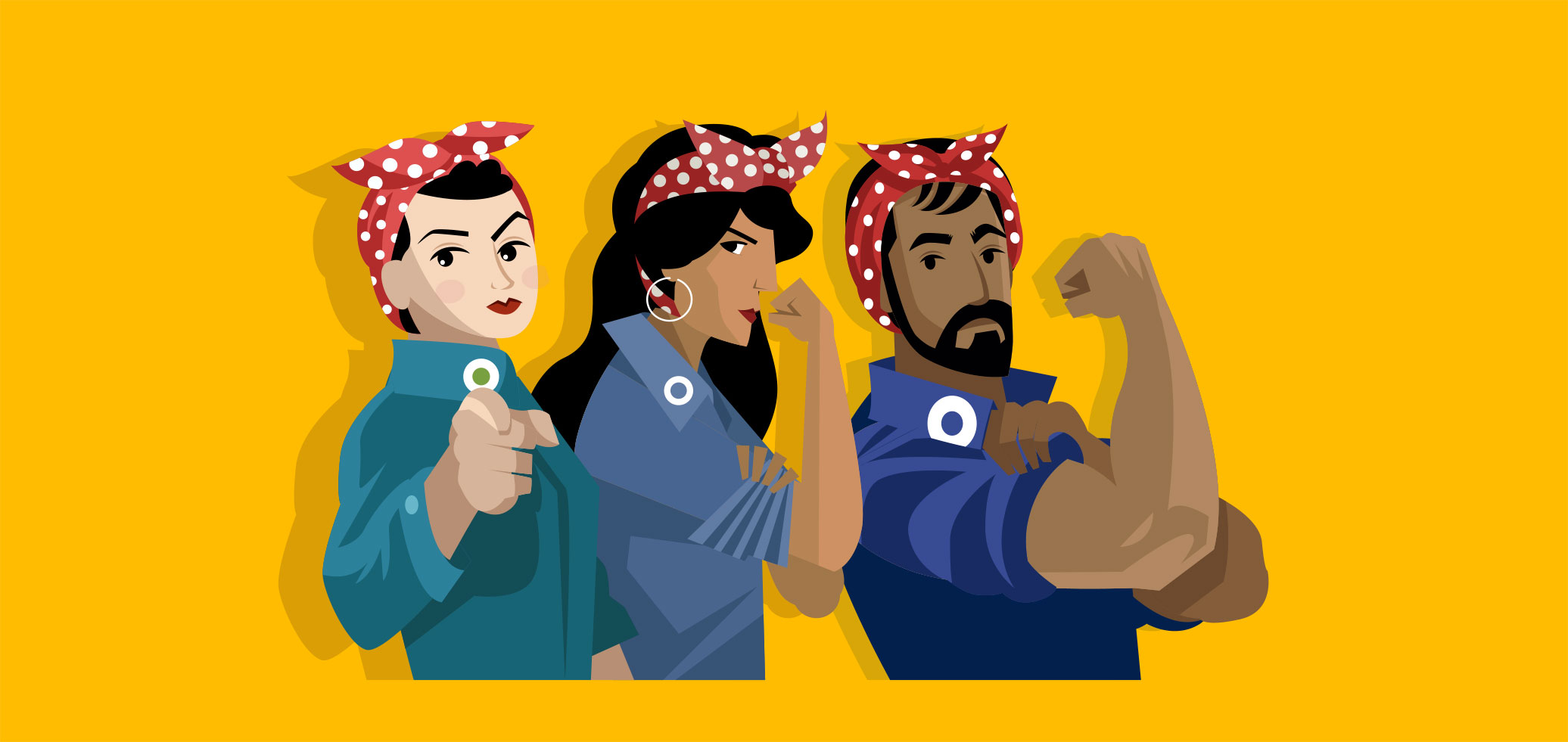Wondering what a Signature Volunteer Program is? We’ve provided some great examples throughout!
The Two Decisive Questions
On the road to starting a Signature Volunteer Program? It may be tempting to choose a program by first asking employees what they want. Instinct says, “Shouldn’t employees tell us what our Signature Program should be about? It’s their program, isn’t it?” Sure! But first, ask, “Why do we want a Signature Program in the first place? What’s our objective?” Your next question will be, “What type of Signature Program fits my objective?” Once you have both of those questions answered, you’ll be better equipped to appeal to employee preferences in a way that aligns with your objective – rather than backtracking later.
Remember, Signature Programs have an objective over and above those of other business-aligned, skills-based, or employee-choice volunteer programs. It’s “signature” because, like a name signed at the end of a document, it’s an identifier. From a brand perspective, it says, “This is who we are.”
Try using these questions to find your way to your objective:
- What is the one thing our company or organization wants to be known for?
- What story do we want to tell in 3-5 years about our community impact?
- What matters enough to us that failure to achieve it would shut the program down? (This one is my favorite!)
- When asked, “What does your company care about?”, what answer would we be proud to give?
A Signature Program can be aligned with a cause (like Abbott’s Future Well Kids), a partner (like Stryker’s partnership with a Operation Smile), or a concept (like Nike’s Made to Play). Each of these programs indicate what Abbott, Stryker, and Nike, respectively, want to be known for.
Decide Between Cause, Partner, or Concept
Cause-focused Signature Programs
Choosing a cause-focused Signature Program typically allows flexibility within a clear set of boundaries. Abbott, a medical devices and healthcare company, chose non-communicable diseases (NCDs) because, among other objectives, they wanted their cause to make sense to internal and external stakeholders. This type of Signature Program is commonly chosen by companies whose core business naturally aligns with a social or environmental cause, such as healthcare, housing, finance, or agriculture.
Additional requirements for Abbott’s program were: 1. Internationally applicable (so they chose a school-based program); 2. Ability for both new and experienced employee volunteers to get involved (so they trained Volunteer Champions to guide untrained, ad-hoc employee volunteers); 3. Measurable (so they set goals related to the lead indicators of NCDs in children, family, and schools).
Other examples of cause-focused programs are Patagonia’s Action Works (climate-change), TD Tree Days (the environment; specially tree-planting), and eBay’s Global Give (inclusive entrepreneurship in local communities).
Partner-focused Signature Programs
Partner-focused Signature Programs are typically chosen by either large companies who already have a strong, well-established relationship with a non-profit partner (prior to designing a strategy for the program), or by smaller companies with a regional or national presence, which makes it possible for one partner to be relevant for all employees. Stryker, a medical technologies corporation, had a pre-established partnership with Operation Smile which fit multiple criteria such as being health-related and allowing for broad employee involvement.
DHL’s partnership with Teach for All is another example of a partner-focused signature program. DHL, as a German logistics company, does not necessarily have a natural alignment with education as a cause. However, “improving the employability of young people” is an important company value that tells a compelling story about their brand. Having partnered with Teach for All more than 10 years ago, DHL has continued to invest in and bolster that partnership over time. A key element is the fact that Teach for All has partnerships with organizations in most of DHL’s key regions, which enables the company to maintain a shared impact narrative all over the world.
Concept-focused Signature Programs
Concept-focused Signature Programs are typically clear on their objective before they begin – that’s how they chose their concept. Take Emirates NBD’s Signature Program. During the design phase, they asked, “Why do we want a Signature Program in the first place?” The conclusion was, “We want employees, friends and family, and partners to exchange their time for community service and make a real difference.” Now, you could say that’s the same as the objective of any employee volunteer program, but Emirates NBD designed their entire program – including branding, messaging, and storytelling – around the concept they call Exchanger. Their Volunteer Champions are even called “Exchangers.” Additionally, Emirates NBD understands that the most effective Signature Programs typically receive the largest portion of the annual CSR budget, and over the years, they’ve invested accordingly. Check out this video as evidence of that investment!
Nike offers another great example of a concept-focused Signature Program. As a sports-oriented company, they could have chosen a cause focus (like increasing access to sports in communities) or a partner focus (like with Make a Wish Foundation), but they wanted to be known for a concept that told a more compelling story. Made to Play allows for employees all over the world to find their own creative ways to create opportunities for play. Nike provides certain guidelines, such as increasing access to play specifically for kids and partnering with approved non-profits. From there? Their employees contribute to the concept in ways that align with their passions and are relevant in their regions.
What’s next?
Now that you know why you want a Signature Program in the first place, and you know what type of Signature Program fits that objective, you can make decisions without stumbling into mistakes you’ll have to undo in the future. Want to know what do to next? Check out five critical success factors for Signature Programs or give us a call – we’d love to brainstorm with you!






